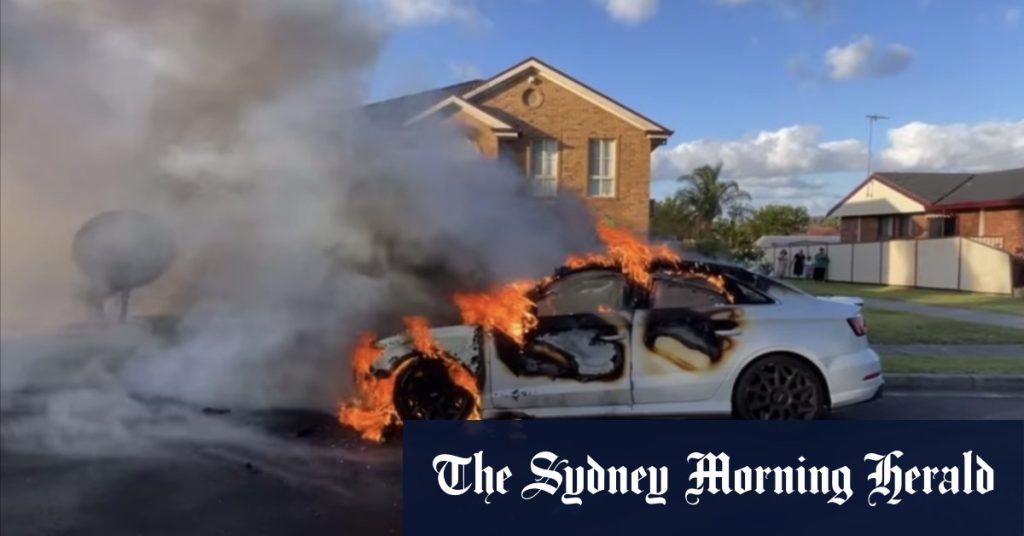The peaceful Sunday evening in Sydney’s west was shattered by the sound of gunshots as a targeted attack claimed the life of 31-year-old David Khou. Just before 7 pm, as Khou exited his home on Sutherland Street in Canley Heights and entered his car, an unknown assailant approached and fired multiple shots through the vehicle’s window, fatally wounding him. Khou, known to have links to Asian organized crime groups and the illicit drug trade, managed to flee from his car despite his severe injuries, collapsing tragically in a neighbor’s front yard. Paramedics arrived swiftly, but their efforts to revive him proved futile. The incident has ignited concerns about the escalating violence associated with organized crime in the city’s western suburbs.
The shooting unfolded in a chilling sequence of events witnessed by several residents. One neighbor, recounting the horrifying scene, described hearing a series of bangs, initially mistaking them for firecrackers. Upon rushing to the window, she was confronted by the grim reality of a man, bleeding profusely from his shirt, desperately fleeing from another individual clad in black and wielding a handgun with a conspicuously large barrel. The stark image of the gun and the victim’s blood quickly dispelled any notion of fireworks. Moments later, a white car sped away from the scene, seemingly carrying the perpetrator. The neighbor’s son, drawing on his military training, rushed to Khou’s aid, administering first aid for the gunshot wounds to his abdomen and arm while awaiting the arrival of police, who responded within minutes.
The rapid response of law enforcement led to the discovery of a crucial piece of evidence shortly after the shooting. A white Audi, believed to be the getaway vehicle used in the attack, was found engulfed in flames on Bathurst Street in the nearby suburb of Wakeley. This discovery solidified the police’s assessment of the incident as a premeditated and targeted attack, likely connected to Khou’s involvement in organized crime. The burning vehicle serves as a stark reminder of the lengths to which those involved in such activities are willing to go to cover their tracks and evade justice.
The investigation into Khou’s murder is now in full swing, with detectives from the State Crime Command’s Homicide Squad leading the charge. They are meticulously piecing together the events leading up to the shooting, examining forensic evidence from the crime scene, and pursuing leads related to the burnt-out Audi. Authorities are appealing to the public for any information that may assist in identifying the shooter and unraveling the motives behind this brutal act. The incident has heightened anxiety within the community, raising concerns about the potential for further violence.
The targeting of Khou, with his known links to organized crime, underscores the complex and often dangerous landscape of illicit activities in Sydney’s west. While the immediate focus remains on apprehending the perpetrator and bringing them to justice, the case also raises broader questions about the underlying factors contributing to such violence. The prevalence of organized crime and its associated drug trade fuels a cycle of violence that often spills over into the community, creating fear and insecurity. The investigation will likely delve into the intricate web of relationships and rivalries within these criminal networks to understand the full context of the attack.
The tragic death of David Khou serves as a stark reminder of the devastating consequences of organized crime. The brazen nature of the attack, carried out in broad daylight in a residential area, highlights the growing audacity and disregard for human life exhibited by those involved in such activities. As the investigation progresses, the hope is that those responsible will be brought to justice, offering some measure of closure to Khou’s family and sending a clear message that such acts of violence will not be tolerated within the community. The incident underscores the urgent need for continued efforts to disrupt organized crime networks and address the root causes that fuel this cycle of violence.

